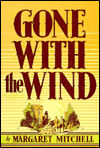Isaac Asimov
 Isaac Asimov
Isaac AsimovAsimov began contributing stories to science fiction magazines in 1939, "Marooned Off Vesta" being his first published story, written when he was 18. Two and a half years later, he published his 32nd short story, "Nightfall" (1941), which has been described as one of "the most famous science-fiction stories of all time" [2]. In 1968 the Science Fiction Writers of America voted "Nightfall" the best science fiction short story ever written [3]. In his short anthology Nightfall and Other Stories he wrote, "The writing of 'Nightfall' was a watershed in my professional career ... I was suddenly taken seriously and the world of science fiction became aware that I existed. As the years passed, in fact, it became evident that I had written a 'classic'".
"Nightfall" is an archetypical example of social science fiction, a term coined by Asimov to describe a new trend in the 1940's, led by authors including Asimov and Heinlein, away from gadgets and space opera and toward speculation about the human condition.
n 1942 he began his Foundation stories—later collected in the Foundation Trilogy: Foundation (1951), Foundation and Empire (1952), and Second Foundation (1953)—which recount the collapse and rebirth of a vast interstellar empire in a universe of the future. Taken together, they are his most famous work of science fiction, along with the Robot Series. Many years later, he continued the series with Foundation's Edge (1982) and Foundation and Earth (1986) and then went back to before the original trilogy with Prelude to Foundation (1988) and Forward the Foundation (1992). The series features his fictional science of Psychohistory in which the future course of the history of large populations can be predicted.
His robot stories—many of which were collected in I, Robot (1950)—were begun at about the same time. They promulgated a set of rules of ethics for robots (see Three Laws of Robotics) and intelligent machines that greatly influenced other writers and thinkers in their treatment of the subject. One such short story, "The Bicentennial Man", was made into a movie starring Robin Williams.
The recent film I, Robot, starring Will Smith, was based on the Hardwired script by Jeff Vintar with Asimov's ideas incorporated later after acquiring the rights to the I, Robot title. It is not related to the I, Robot script by Harlan Ellison, who collaborated with Asimov himself to create a version that captured the spirit of the original. Asimov is quoted as saying that Ellison's screenplay would lead to "the first really adult, complex, worthwhile science fiction movie ever made". The screenplay was published in book form in 1994, after hopes of seeing it in film form were becoming slim. See: I, Robot, [4]
Besides movies, his Foundation and Robot stories have inspired other derivative works of science fiction literature, many by well-known and established authors such as Roger MacBride Allen, Greg Bear, and David Brin. These appear to have been done with the blessing, and often at the request of, Asimov's widow Janet Asimov.
In 1948 he also wrote a spoof science article, "The Endochronic Properties of Resublimated Thiotimoline". At the time, Asimov was preparing for his own doctoral dissertation. Fearing a prejudicial reaction from his Ph.D. evaluation board, he asked his editor that it be released under a pseudonym, yet it appeared under his own name. During his oral examination shortly thereafter, Asimov grew concerned at the scrutiny he received. At the end of the examination, one evaluator turned to him, smiling, and said "Mr. Asimov, tell us something about the thermodynamic properties of the compound thiotimoline". After a twenty-minute wait, he was summoned back into the Examination Room and congratulated as "Dr. Asimov."
Extract from Wikipedia
Foundation 01 - Prelude To Foundation
Foundation 02 - Forward the Foundation
Foundation 03 - Foundation
Foundation 04 - Foundation And Empire
Foundation 05 - Second Foundation
Foundation 06 - Foundation's Edge
Foundation 07 - Foundation And Earth
Foundation 08 - Foundation's Fear
Catastrophes
Fantastic Voyage II - Destination Brain
Robot 02 - The Caves of Steel
Robot 03 - Naked Sun
Robot 04 - The Robots of Dawn
Robot 05 - Robots & Empire
Robot 06 - The Bicentennial Man
Robot 06 - The Stars Like Dust
Robot City 01 - Odyssey
Robot City 02 - Suspicion
Robot City 03 - Cyborg
Robot City 06 - Perihelion
Robot Dreams
Robots & Aliens 3 - Intruder
Robots & Aliens 4 - Alliance
Robots In Time 1 - Predator
Robots In Time 3 - Warrio
The Fun They Had
The Gods Themselves
11.24 MB

.jpg)














































































































































































































































































































































































































































































































